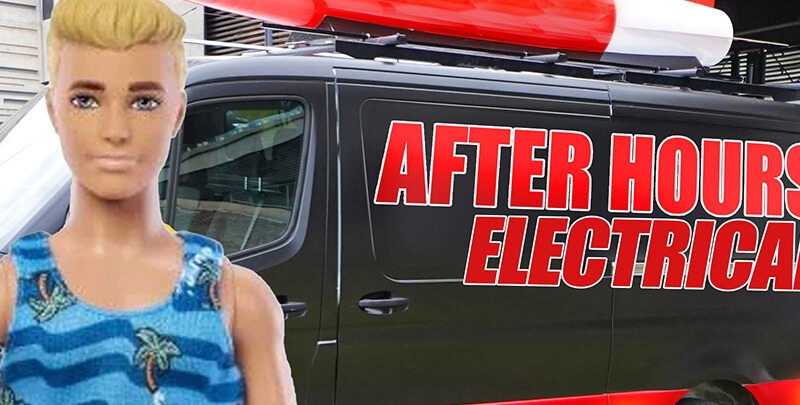Dangers of DIY Smoke Alarm Installation

Few devices are as crucial as smoke detectors and alarms when safeguarding your home and loved ones. These unassuming gadgets are early warning systems, alerting you to smoke and potential fires.
However, some homeowners opt for a cost-cutting shortcut – DIY (Do-It-Yourself) smoke detector and alarm installation despite their importance. In this blog, we’ll delve into the pitfalls of this standard practice, shedding light on why it can jeopardise your safety.
The Appeal of DIY Smoke Alarm Installation
DIY projects have always held a certain allure for homeowners. The idea of saving money and the convenience of taking matters into your own hands can be tempting. When installing smoke detectors and alarms, the appeal is no different.
Many homeowners opt for DIY installation, primarily driven by two key factors: cost savings and convenience.
Dangers of DIY Smoke Alarm Installation
Installing a smoke alarm is an important safety measure to protect your home and loved ones from fires. Although numerous individuals choose to install smoke alarms themselves, it’s essential to recognise the various hazards and challenges associated with DIY installation:
- Inadequate placement – Proper placement of smoke alarms is crucial for their effectiveness. DIY installers may need to know the ideal locations for powered smoke alarms, leading to incorrect orders. Smoke alarms should be installed on each level of the home, in living areas, near sleeping areas, and in hallways. Installing them in the wrong spots or too close to vents, windows, or doors can result in false alarms or delayed detection.
- Incorrect wiring – Smoke alarms should be hardwired into the electrical system of the person or house and have battery backup. DIY installers may not have the electrical knowledge to wire the alarms correctly, leading people to sleep through potential safety hazards.
- Battery maintenance – Smoke alarms with battery backup require regular battery replacement. DIY installers may need to remember or pay attention to this essential maintenance, rendering the rest of the batteries in the alarms ineffective during power outages.
- False alarms – Improper installation can lead to false fire alarms, which can be annoying and dangerous. If a smoke alarm is too close to a kitchen, bathroom, bedroom or any area with high humidity or cooking smoke, it can trigger false alarms.
- Incompatibility – Smoke alarms from different manufacturers may not work well together. Mixing and matching other brands or models of smoke alarms can lead to compatibility issues, reducing the overall system’s effectiveness.
- Lack of interconnectivity – To ensure optimal safety, homeowners should interconnect smoke alarms, enabling simultaneous activation of all notices when one detects smoke. DIY installers may need to acquire the necessary knowledge or tools to set up this interconnection.
- Code compliance – Many areas have specific building codes and regulations regarding smoke alarm installation. DIY installers may need to be made aware of or follow these requirements, which could result in legal and safety issues.
- Warranty and liability – If a certified professional does not install the unit, you may void the warranties of some smoke alarms. DIY installation can lead to extra cost, potential warranty issues and liability concerns if the smoke alarm fails to function properly during a fire.
- Lack of testing and maintenance – Regular testing and maintenance are critical for smoke alarms. DIY installers may not regularly test or replace their alarms or be unaware of the proper maintenance procedures.
- False sense of security – DIY installation may give homeowners a false sense of security, leading them to believe their home is adequately protected when it may not be. This security can be hazardous in the event of a fire.
Smoke alarms are generally recommended by a certified professional familiar with local building codes and safety standards to ensure your home’s safety.
However, if you install smoke alarms, carefully follow the manufacturer’s instructions and research the best practices for placing and maintaining one smoke alarm. Regularly test and maintain your smoke alarms well to ensure they are in proper working condition.
Tips for Choosing a Professional Installer (Optional)
If you’ve decided to purchase or go the professional service route for house fire first, here are some tips for selecting a reputable smoke alarm installation service:
- Look for certifications and test credentials.
- Read reviews and seek referrals from trusted sources.
- Ensure they offer ongoing maintenance services.
The Importance of Professional Installation
Here are the key reasons why you should get smoke alarms installed by a professional:
- Certified installers: The safer alternative is opting for professional installation. Certified smoke alarm installers possess the qualifications and training to ensure your alarms are optimally placed, correctly installed and wired. Their expertise in this field provides peace of mind that DIY smoke alarm installations can’t match.
- Compliance with codes and standards: Professional installers also adhere to local building codes and safety standards they install. In some areas, legal requirements mandate the professional installation of residential properties. By choosing certified professionals to establish you, you ensure your home complies with these regulations, further enhancing your security and safety.
- Peace of mind: The most compelling reason to choose professional installation is the peace of mind and security it brings. Knowing that your smoke alarms have been expertly placed and wired instils confidence that your home is well-protected. Professionally installed and wired smoke alarms are reliable, reducing the risk of false alarms or failures.
Hire Professionals for Smoke Alarm Installation
In conclusion, the dangers of DIY smoke alarm installation are clear. Inadequate battery placement, incorrect wiring, and neglected testing and maintenance of hard-wired smoke alarms can compromise your safety and insurance coverage.
The wisest choice for homeowners is to prioritise safety by choosing professional installation. Your family’s well-being is worth the investment in certified smoke detector installers who ensure your smoke alarms function as intended.
Please note: This information is provided for advice purposes only. Regulations differ from state to state, so please consult your local authorities or an industry professional before proceeding with any work. See After Hours Electrical’s Terms & Conditions here.
